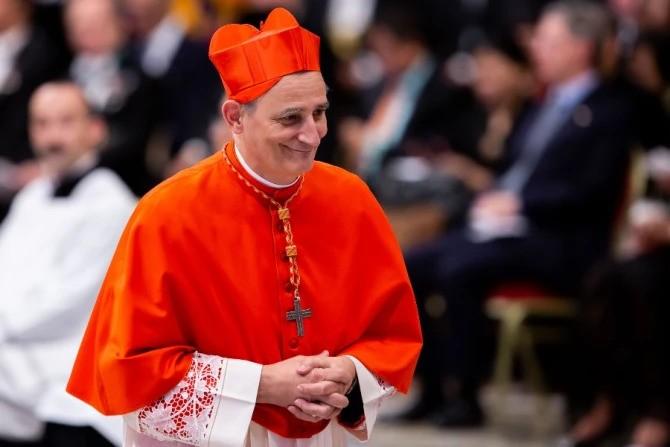Italian Cardinal Proclaims The End Of Christendom Is A 'Kairos'
The cardinal said this is an opportune time willed by God for the Church to return to essentials and recover the freedom of the beginnings.

This Monday, November 17, Cardinal Matteo Zuppi, president of the Italian Episcopal Conference (CEI), opened the General Assembly of bishops in Assisi with a speech in which he affirmed that the end of Christian civilization should not be understood as a defeat, but as a “kairos”: an opportune time willed by God for the Church to “return to the essentials” and recover “the freedom of the beginnings”.
According to Zuppi, secularization does not signify the decline of the Gospel, but rather the end of an “order of power and culture.” In his view, contemporary Christians are no longer “custodians of a Christian world,” but “pilgrims of a hope” that advances even in a de-Christianized social context.
A “new Christendom” detached from the old
As La Nuova Bussola Quotidiana points out, Zuppi’s proposal is not new. In recent years, figures such as Cardinal Jozef De Kesel, Archbishop Emeritus of Mechelen-Brussels, have defended similar positions. The idea has its roots in certain theology of the 1960s and in the thought of Jacques Maritain, who dreamed of a “new Christendom” detached from the old.
The novelty lies in the fact that this thesis is being proclaimed so forcefully once again by the president of the Italian Episcopal Conference (CEI), precisely at a cultural moment marked by the accelerated dissolution of Christian ties in European society. This proposition raises a fundamental concern: if secularization is a “time of grace,” then—implicitly—Christendom would have been a historical error, a deviation, a period in which faith was “obscured” by political and cultural structures that, according to Zuppi, did not transmit the Gospel with sufficient transparency.
“Christendom was not a mistake; the mistake is to despise it.”
The central critique is directed against the negative interpretation of the centuries in which faith shaped the culture, law, art, and social life of Europe. La Bussola points out that reducing Christendom to a system of power is a “historically unjust and theologically impoverished” judgment that ignores the spiritual, cultural, and missionary fruitfulness of those centuries. Zuppi’s assertion, then, implies that the saints, founders, Christian communities, and great reform movements lived and proclaimed the Gospel in an obscured way, and that only now—thanks to secularization—can the Church do so authentically.
From Fact to Dogma: Secularization as a Theological Principle
Another point of criticism focuses on the risk of transforming a sociological phenomenon—secularization—into a principle of theological interpretation. In this sense, Zuppi does not limit himself to describing the state of society, but rather elevates that state to a normative criterion, transforming a cultural fact into a “practical dogma” from which the faith, mission, and very history of the Church are reinterpreted.
The problem is that secularization is neither a neutral nor a spontaneous phenomenon: it is the result of a long process of thought opposed to Christianity, from the Reformation to modern anticlerical movements. To take it now as a guiding light for the Church would imply legitimizing the very forces that originally sought to separate society from the faith.
The centenary of Quas primas: an unavoidable contrast
Zuppi's message arrives on a date laden with symbolism: the centenary of Quas primas, Pius XI's encyclical on the social kingship of Christ. Published on December 11, 1925, the encyclical affirmed precisely the opposite of what Zuppi suggests: that faith should not be relegated to the private sphere and that society needs to recognize Christ's sovereignty to achieve its true order. The logic of the cardinal's discourse would lead one to consider Quas primas a historical error, belonging to a bygone era, incompatible with the new "kairos" of secularization.